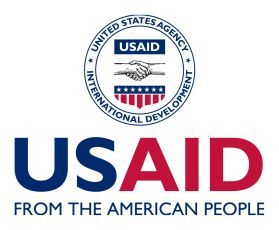Sudan, USAID discuss ways to promote joint cooperation
February 28, 2016 (KHARTOUM) – Sudan’s Minister of International Cooperation Kamal Hassan Ali has discussed with the Assistant Administrator for the Africa Bureau at the US Agency for International Development (USAID) Linda Etim the possibility of cooperation between the two sides.
 Ali, who met Etim Sunday in Washington in the presence of Sudan’s ambassador to the US Muawia Osman Khalid and the US special envoy to Sudan and South Sudan Donald Booth, briefed her on the role of his ministry in coordinating assistance for the purposes of development and reconstruction.
Ali, who met Etim Sunday in Washington in the presence of Sudan’s ambassador to the US Muawia Osman Khalid and the US special envoy to Sudan and South Sudan Donald Booth, briefed her on the role of his ministry in coordinating assistance for the purposes of development and reconstruction.
He told the USAID official that his ministry is developing a humanitarian aid strategy that is consistent with the requirements of the sustainable development and the transition from humanitarian assistance to development.
The Sudanese official urged the USAID for the need to turn the assistance into a motivation for development by supplying the IDP’s with the means of production that enable to rely on themselves not the relief.
He also briefed the USAID official on the challenges that facing Sudan after the secession of South Sudan, pointing to the large influx of Southern refugees into the north due to the ongoing conflict in the newborn nation.
The Sudanese minister stressed the importance to promote joint cooperation between the USAID and Sudan.
He further briefed the Etim about the ongoing national dialogue conference and the reform efforts besides the peace talks with the various armed movements.
For her part, the USAID official welcomed the talks between the two sides to discuss the entire joint issues, praising the mechanisms developed by the ministry of international cooperation to communicate with the donors to discuss the challenges facing the aid management.
The two sides agreed to continue the dialogue and mutual contacts at all diplomatic and technical levels to promote ties to achieve the sustainable development.
Washington imposed economic and trade sanctions on Sudan in 1997 in response to its alleged connection to terror networks and human rights abuses. In 2007 it strengthened the embargo, citing abuses in Darfur which it labelled as genocide.
Also, Sudan was placed on the US terrorism list in 1993 over allegations it was harbouring Islamist militants working against regional and international targets.
(ST)
